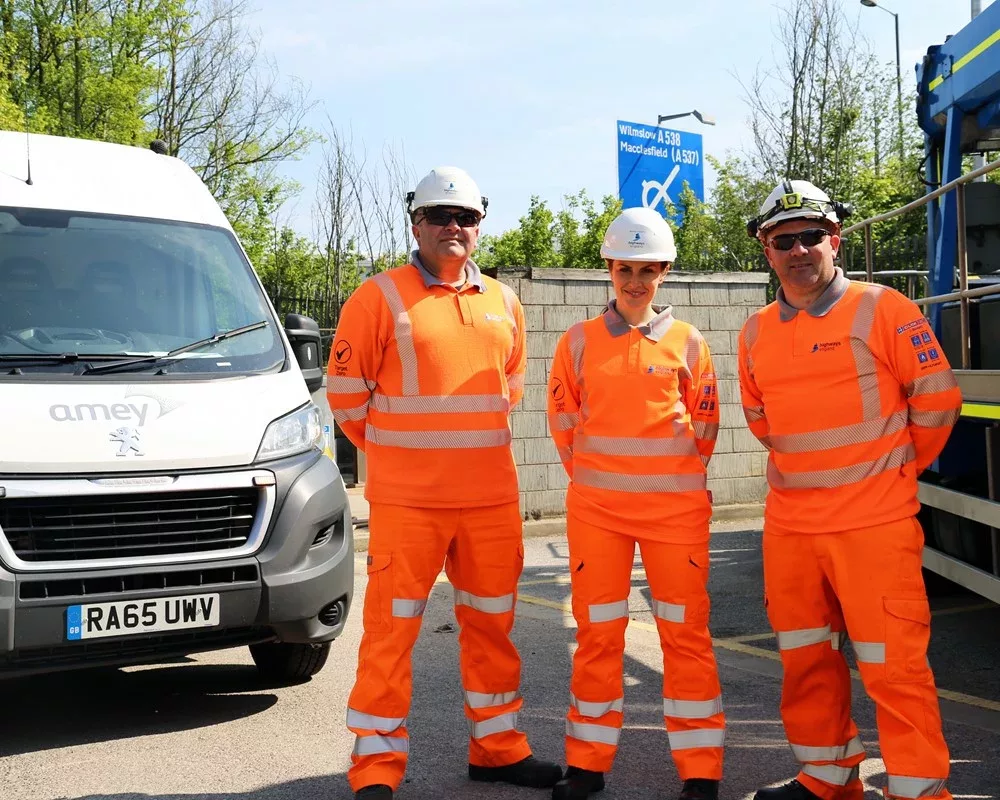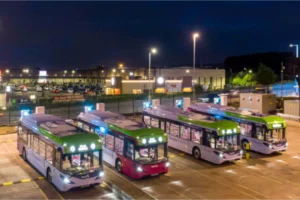By Amanda Fisher, Chief Executive of Amey
My priority as CEO is investment in our frontline employees. Throughout the pandemic we’ve maintained pay uplifts for our frontline employees and at the start of the year set out to become a Real Living Wage employer – the only rate which is independently calculated based on the actual cost of living, this decision has increased the pay of over a quarter of our workforce. Our investment will benefit those working in the heart of communities; their continued presence providing a sense of normality in an otherwise uncertain time, looking after local roads, cleaning schools, and collecting household waste. Roles which rightly received new-found recognition during the crisis.
We recently welcomed 150 employees from another supplier on a five-year contract to provide facilities and asset management services to Highways England, and on day one over half of them received a payrise, benefitting from our commitment to paying the Real Living Wage. We see employee recognition as a key tool in optimising performance of our teams – helping our client to keep the strategic road network operating and keep road users safe.
Employee feedback shows that pay is just one way of valuing people’s contributions. So, as well as receiving the Real Living Wage (RLW), teams have also gained access to additional, newly-improved benefits including sick pay, holiday allowance, life assurance, pensions, and lifestyle options, and throughout 2020 we have increased our focus and activity around wellbeing to help our employees navigate this difficult period. For Amey, these changes represent a significant investment – but we know that by showing our people that they matter, they’ll be engaged, productive and healthier. That motivation delivers the best results for our clients and supports the long-term growth and profitability of our business.
Working with our suppliers
Amey spends £1.1bn a year with its supply chain. Following discussions with our preferred agency for temporary recruitment, we are paying the RLW to approximately 1,000 temporary workers. We continue to explore options for working with the rest of the supply chain.
However, the most helpful step would be for the industry to make headway on awarding contracts based on the social value for people, and for communities, instead of the lowest cost. It is no secret that margins are tight within the outsourcing sector. A joined-up approach would ensure companies like Amey can maximise benefits for people and communities, while generating profits in a sustainable way.
We’ve seen real progress, with the publication of the Outsourcing Playbook and a new Social Value Framework from government, requiring that social value be given greater focus, and explicitly evaluated in central government procurements. We are hopeful that this forward-thinking approach will serve to benefit people across the entire value chain.
In parallel, we’ve launched our Social Value Supply Chain charter – asking suppliers to consider what social value they can deliver, and how they will invest in their people. We’ve also signed the Social Mobility Pledge. Recognising the contribution of our people, and maximising the impact of our work, is an ongoing journey. I’m proud we have taken an important first step – by increasing pay for those making a real difference to people’s lives.





















